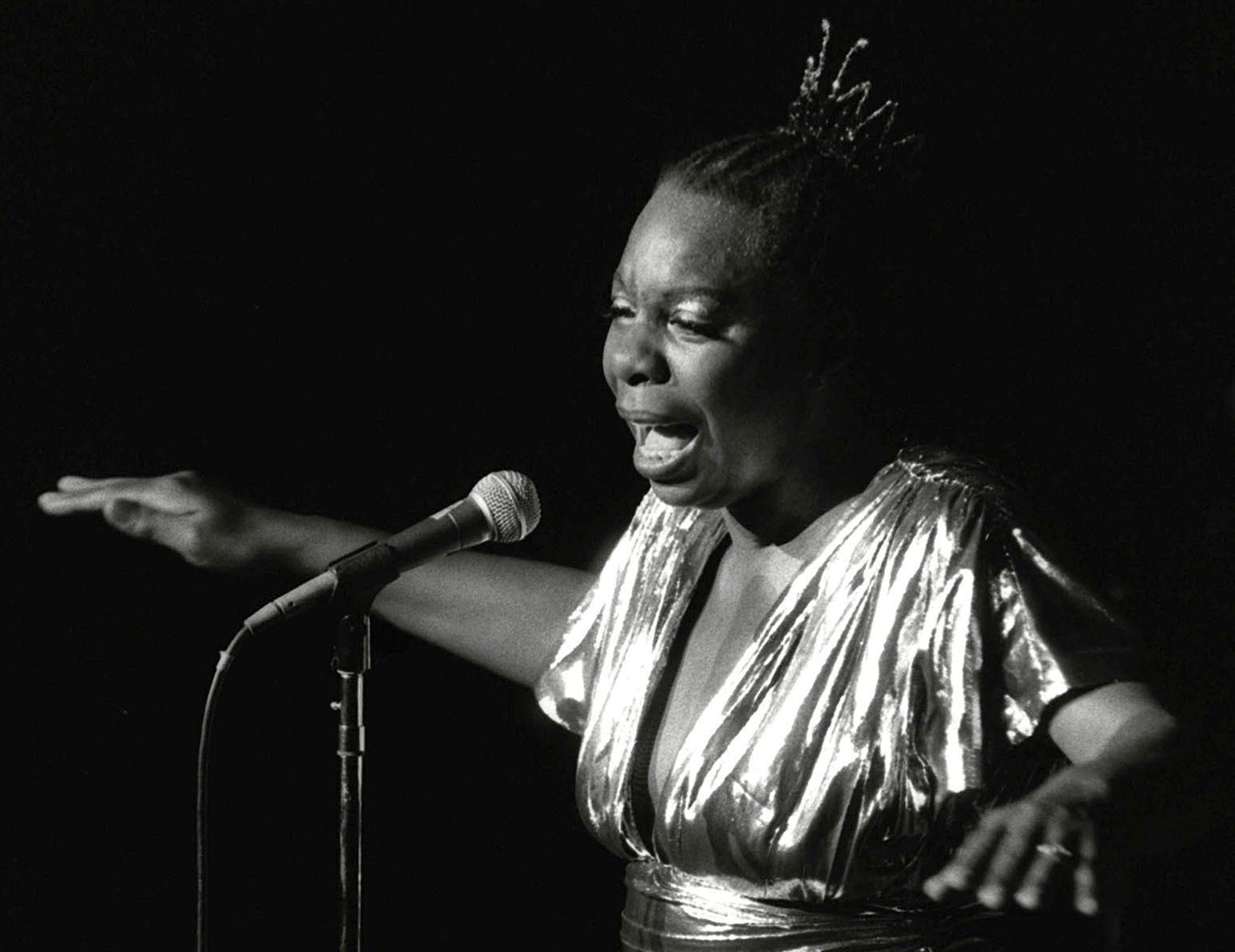Women’s contributions to hip-hop are often overlooked or flat out erased. But it’s Women’s History Month and a year-long celebration of hip-hop’s 50th anniversary, so we are here to celebrate and educate. Here are five women whose particular and tremendous contributions to hip-hop—and by extension, R&B—have endured for generations.
1. Nina Simone
The prodigious musician and activist used her artistry to preach a message to the masses at the height of the Civil Rights Movement. She sang about a wide range of topics from racism to Black pride to love and always told the truth no matter who didn’t like it—even when her music got banned at times. That fiery spirit and rebellious nature laid the foundation for what would later become hip-hop. Not only did some rappers follow her lead in talking about societal injustices and other conditions, they also name-dropped Nina frequently enough to pique future generation’s interest in her legacy.
Lauryn Hill, Talib Kweli, and Jay Z are just a few among many who have paid homage to Simone, whether through sampling, remakes of her classics, or often mentioning her by name. In the 1619 Project documentary on Hulu, rapper Rapsody talks about Nina Simone’s influence on her. “I always hear her voice when I’m going into the studio”, said Rapsody. “‘Never forget as an artist what your purpose is, to reflect the times—whatever the time is.’”
2. Millie Jackson
Millie Jackson’s signature raspy voice was undeniable. Not only did she belt out raunchy tunes, but she was also known for spoken-word breaks in her music. Jackson wasn’t afraid to be edgy and hyper-sexual and was often criticized (mostly by men) for being “unladylike.” But she didn’t care. Jackson made an entire album about the reality of being the side chick decades before SZA, Summer Walker, or any of the other rappers and R&B girls who are popular today.
3. Grace Jones
The Jamaican-born artist’s music has been sampled a lot in hip-hop. Think songs like “Bad Boyz” by Shyne and Barrington Levy, “Ooh Lala” by Coolio, “Doin’ It” by LL Cool J, and more. She has also received shout-outs and been featured on songs by Lil’ Kim and Beyoncé. In addition to her music, her edgy visual style and commanding presence on stage introduced a sexy, take-no-prisoners attitude that has inspired the style personas of artists like Kelis, Lil’ Kim, Rihanna, and more. Grace Jones is truly muva.
4. Josephine Baker
Josephine Baker was known for embracing her fashion sense and sexuality. In the 1920s, when it was especially hard for a Black woman to become a super star, she accentuated her playfulness and sexiness often crossing her eyes and making funny faces while gyrating on stage. She was also iconic for rocking gold hoop earrings and a skirt made of bananas. The hoop earrings in particular date back to ancient African civilizations where they were revered, but Black women in America were usually criticized for wearing them. Women who wore hoops were considered “fast” or trashy, but Miss Baker didn’t care and she paved the way for hoops to gain more popularity. In the 1980s Black women in urban areas embraced them as the ultimate symbol of confidence. Bamboo hoop earrings are still a streetwear fashion staple to this day.
5. Sonia Sanchez
Sonia Sanchez is one of the key brilliant minds involved in orchestrating the Black Arts Movement, which took place in the 60s and 70s. The Black Arts Movement consisted of a variety of artists and activists whose goal was to spread political awareness and knowledge of self through their art. Her poetry contributed to the early foundation of hip-hop as she was one of the most prominent poets to incorporate Black English into her poetry, even spelling words out phonetically. Sanchez is also one of the poets from that movement who embraced hip-hop when it began to develop and didn’t write it off as a fad. Sanchez, 88-years-old, is still active in the arts to this day.
The elements of hip-hop were created on the foundation of many of Black artists who had a variety of talents that influenced the genre. And these Black women artists are essential to the hip-hop we know and love. Give them their flowers.




